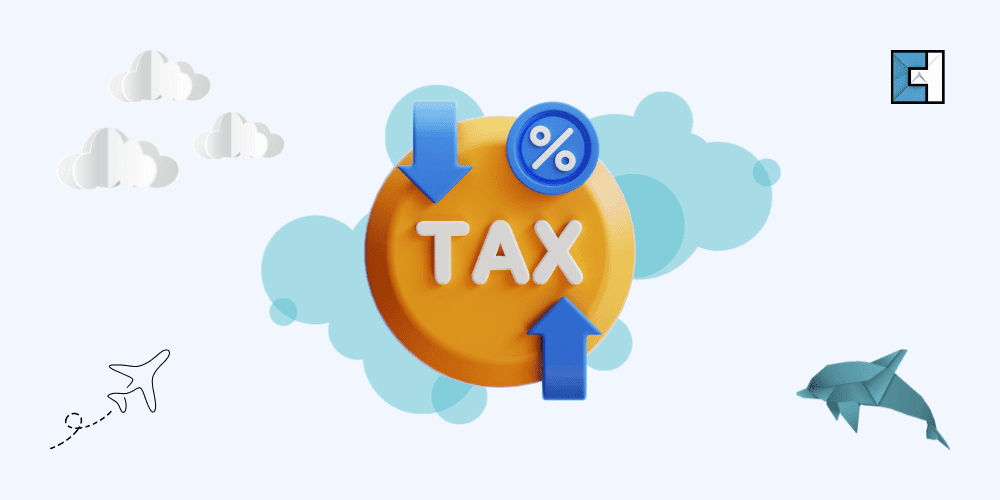Every taxpayer in the UK has a personal tax account, Although a larger percentage of of us are unaware of it. Since HMRC very recently implemented them in 2015, there hasn’t been much publicity for them. As of July 2018, nearly 15 million people have created their Personal Tax Accounts, but this only accounted for around 44% of the UK’s working population.
Considering this, PTAs are a helpful tool for verifying your personal tax data and any associated information. Our specialist team of London Accountants have curated a detailed explanation of the digital personal tax account and its key uses.
What is a Personal Tax Account (PTA)?
The HMRC personal tax account is a part of HMRC’s drive to ‘make tax digital. With the use of your PTA, you can manage your tax payments with HMRC online in a similar manner to your online bank account. They want their online Personal Tax Account to handle every taxpayer and business. If their identification can be satisfactorily verified, anyone can open a personal tax account. If you are unsure about how this works, speak to your Personal Tax Accountant for more information.
Is Creating a Personal Tax Account Mandatory?
HMRC is demanding all people open personal tax accounts. You will be in a better position to make decisions if you have more control over your financial data. Everybody ought to be able to utilise a personal tax account if they choose to. The functionality will only grow as more services are likely to be added in the future.
If you would prefer not to, you do not have to register a login for your personal tax account. You can still employ paper-based services or the company’s traditional methods of communication.
However, it is well known that calling HMRC is difficult, and as more services move online, this situation is only going to grow worse. Paper-based administration is frequently more time-consuming and requires more checks or supporting evidence.
This is because the information you immediately submit can be used to run automatic checks online. Doing so eliminates the necessity for conventional supporting documentation—which might be difficult to reproduce and provide.
It is strongly advised to set up a personal tax account due to these factors. There won’t be any consequences if you don’t, but you can end up with a serious disadvantage.
But Are You Actually Checking Your Personal Tax Account?
Even though checking your personal tax account has significant advantages, according to the research
- Up to 46 per cent of UK workers have never done so.
- 22 % of respondents believed they didn’t make enough money to warrant checking their personal tax account.
Here are some reasons why it is important to stay on top of your tax obligations:
Top Reasons Why You Should Check Your Personal Tax Account
Many of you have queries in your mind about what you can do with your tax account. You have access to many different areas of your tax file and can use the tool to:
- Notify HMRC that you have relocated. You can change your address using this service.
- You may follow the status of any letters or tax forms you’ve submitted online.
- Online self-assessment tax return filing and monitoring.
- Check your income tax estimate so you can more effectively plan your spending.
- Apply for a Certificate of Residence in the UK
- Check the status of your state pension. You can examine your National Insurance contribution history and receive an estimate of your expected state pension through this tool.
- Child benefits: You can use this service to report changes that could have an impact on child benefits. For example, your child continues their education or training.
- Keep track of any tax-related forms you have submitted online to HMRC
- Set up tax credits
- If you received a PAYE coding notice indicating that you paid too much or too little tax in the previous year. You will be able to explain why this happened using your digital account.
- Keep track of and update your marriage allowance. You can use this service to send a portion of your personal allowance to your spouse, civil partner, or civil partner.
- If you are self-employed or need to file a tax return for any other reason, find a lost UTR number.
- Examine business advantages like health insurance or a company automobile.
- If you believe you have paid too much or too little tax, examine your P800 forms.
- If you’re a non-resident, you can apply to have your rental income paid to you without UK tax deducted.
Keep in mind that this is only the starting list. As they aim toward having a fully digital tax collecting and payment system, HMRC continually adds new components.
What Are The Benefits Of My Personal Tax Account
- It enables people to handle their own tax matters 24/7 because it’s an online personal tax account.
- Take a look at your pay-as-you-earn (PAYE) tax codes.
- Letting HMRC know if your job perks have changed.
- Compared to alternative approaches like paper filing, it offers a far more accurate and streamlined approach to recordkeeping.
- Obtaining year-end income information quickly.
- Claiming to lower your self-assessment account payments
- Updating tax credit and child benefit claims
- Real-time access to updated tax information is available.
- Easily check your State Pension Forecast (the potential amount of your State Pension) with the click of a mouse.
How do I Set Up a Personal Tax Account?
To access the Personal Tax Account, you will need to register online:
Many of you are wondering how to create your personal tax account. In order to create a personal tax account for UK residents only, you will be required to set up security procedures and enter your information in the online form, which is simple to use. But how well organised your paperwork is at the outset will determine how long it will take you to find the information you require. Things you will need
- National Insurance number.
- Recent payslip
- Most recent P60 or UK passport
- Your mobile number or landline number, as part of the 2-step security
- Choose which email address you want to attach to the account
- National Insurance number.
Once you have everything ready, go to Government Gateway and choose either the individual, organisation (if you are representing a business) or agent (if you are representing others to the government in financial matters) column to begin the registration process.
Why Should The Self-employed Set Up Their Personal Tax Account?
If you’re a self-employed or a Self Assessment customer, you can use your personal tax account in the UK to
- Determine your Individual Taxpayer Reference (UTR)
- Challenge a late filing penalty for a self-assessment
- Submit your self-evaluation
- Online HMRC Annual Tax Summary
- Visualising and printing your tax calculation
- Read any secure messages
- If your situation changes, you can request a reduction in your account payments.
Safety and Security
Only you can access your personal tax account thanks to HMRC for providing a unique user ID and password. HMRC takes security very seriously and implements firewall security as a standard across all of its systems.
Since it recognises any unauthorised entry attempts, this offers the highest level of security for your information. You can only access your account, and all the information you give with HMRC online is encrypted.
You have to be watchful about your own online safety and take care of the points mentioned below.
- Do not tell anyone about your user ID or password.
- Keep your passwords in a secret location if you frequently forget them.
- Keep an eye on your account frequently.
- The system’s security features include displaying the time and date of your most recent login to your Personal Tax Account. If something doesn’t seem right, get in touch with HMRC right away.
If there has been no activity in your account for more than fifteen minutes, the system will log you out. One of the best features to keep your account safe.
Help And Advice On Your Personal Tax Affairs
It can be beneficial to work with an accountant to determine your personal tax liability and identify strategies for lowering it unless your tax issues are extremely straightforward. Advice on tax planning can help you
- Increase your take-home pay
- Lower your chance of filing tax returns incorrectly and
- Increase the predictability of your finances over the long run.

How to open personal tax account?
Creating a personal tax account only takes ten to twenty minutes. As it only requires setting up security procedures and entering your information, the online form portion is simple to use. But how well-organised your paperwork is at the outset will determine how long it takes you to find the information you require. Things you will need
National Insurance number.
Recent payslip
Most recent P60 or UK passport
Your mobile number or landline number, as part of the 2-step security
Choose which email address you want to attach to the account
National Insurance number.
How much does a personal tax accountant cost?
Many self-employed people opt to seek the assistance of a personal tax accountant. The cost of hiring a qualified accountant to handle your taxes varies depending on your situation and the types of tax forms you file. Hiring an accountant will cost less if your tax position is simple. On the other hand, they will charge you more if you work for yourself.
How to claim tax refund on personal tax account?
If you’ve paid more tax than necessary, you might be eligible for a tax refund. Utilize this service to learn How to claim a tax refund on a personal tax account
Once you have a personal tax account, you must first search for the appropriate form, such as P53Z, to request a refund.
How to find a good personal tax accountant?
You must take some factors into account in order to choose a good personal tax accountant.
Has their reputation been good?
Whether or not they have clients?
Has someone you know suggested them to you?
Were they affable when you met them?
Do they appear to function effectively?
Do they have experience with businesses of your size and in your field?
Do they participate in a professional organisation with a grievance procedure and criteria for professional indemnity insurance?
Do they provide all the services you might require as your business develops?
What about recommendations for investing, auditing, or insolvency?
Do they have any knowledge of the specific tax issues you require assistance with?









































































